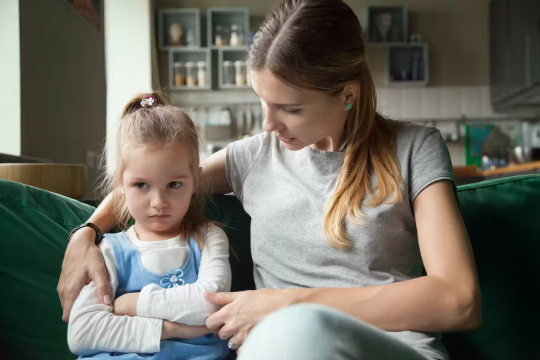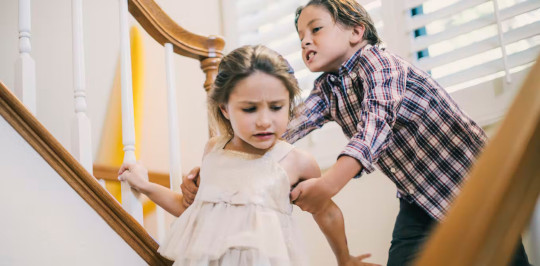
How our families express feelings, talk about feelings and react to feelings can have ripple effects into the next generation.
- By Yang Hu

Have you heard of “eldest daughter syndrome”? It’s the emotional burden eldest daughters tend to take on (and are encouraged to take on) in many families from a young age.
- By Sarah Leupen

Everyone has one, but you might not know much about it. Biologist Sarah Leupen explains the ins and outs of belly buttons.

Most of us have heard the one about if you cross your arms over your chest you’re feeling defensive or if you’re fiddling with your hair while talking you feel nervous – but is there really any truth to some of these body language stereotypes?
- By Aldert Vrij

Do you ever wonder if you could pass a lie detection test or imagine what it would be like to read people’s body language?

Partners who live together typically come to this significant place in their relationship in one of two ways – what some clinicians call “sliding versus deciding.”

By producing resumes, essays, jokes and even poetry in response to prompts, the software brings into focus not just language models’ arresting power, but the importance of framing our questions correctly.

Eating together regularly as a family has long been promoted as a simple solution for improving health and wellbeing.

Do you feel that you are living your life in full bloom? Do you too feel as if there’s a ceiling on life that shows up in different ways?

A useful skill for finally letting in the voice of reason is to “do the emotional math.” This skill enables us to know the truth...
- By Sam Carr

For all the joy they bring, families and close friendships often involve conflict, betrayal, regret and resentment.
- By Jude Bijou

The demise of marriages and relationships in general, is not over money, children, or health but crummy communication styles.

During former President Donald Trump’s campaign and presidency, the word narcissism became something of a buzzword. And in recent years the word has been popularized on social media and in the press.

Nearly 80% of U.S. children grow up with a sibling. For many, brothers and sisters are life companions, close confidants and sharers of memories. But siblings also are natural competitors for parents’ attention.

It’s a well-established fact that children’s and teens’ mental health took a hit during the pandemic. But new research suggests that teen girls in particular are suffering in unprecedented ways.

“Compassionate listening” is critical to interpersonal and political communication, because without it, more talking can exacerbate the existing divides and misunderstandings.

Email is often a means of informal communication. As such, you can dramatically decrease the amount of time spent on email with short, efficient replies. Dispense with formalities whenever possible and increase efficiency.
- By Evita March

In a study by myself and Cassandra Lauder at Federation University, we wanted to find out what psychological traits were common among people who conduct behaviours associated with catfishing.
- By Simon Sherry

For many people, the dominant narrative insists that to be in a romantic relationship is to be happy. And for many single people, the day can come with pressure to find a partner.

One of the difficult things about working on the philosophy of love is that human relationships change, but our dominant images of love tend to remain the same.

Ah, Valentine’s Day: that Hallmark holiday of greeting cards and chocolates, its bloody origins almost entirely forgotten over the last 2,000 years!
- By Alexis Blue

Smooches and snuggles may make us feel warm and fuzzy, but they can also be good medicine, says Kory Floyd.

Civility cannot be legislated, mandated, or enforced by governments—it comes from internalizing civil values in our lives. In other words, as we become happier, we also become more civil, and becoming more civil reinforces our happiness.


















